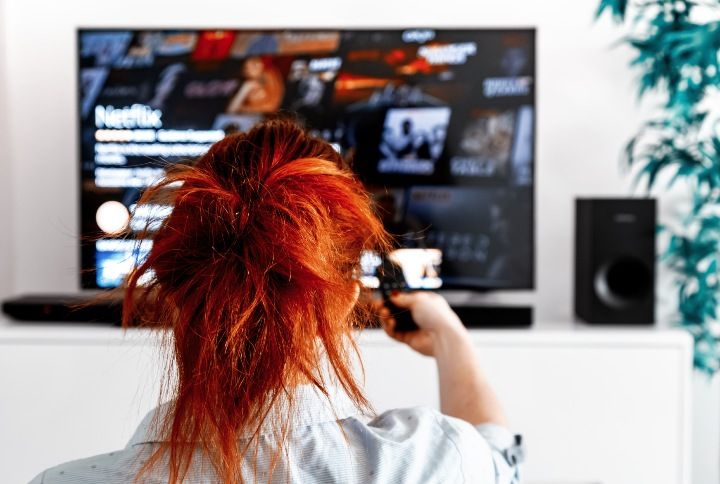If you’ve subscribed to any streaming entertainment services, chances are you must’ve indulged in binge-watching at least once. Binge-watching refers to watching many or all episodes of a television show in a single sitting. With the rise of OTT platforms in recent years, and the tendency to release entire TV series or seasons at one go without the interruption of advertisements, binge-watching has become the ‘new normal’.
While this may be glorious for TV fans, it’s a little worrisome to health experts everywhere. With your favourite content being available at the click of a button, and the increase in screen time becoming normal—replacing the hours generally devoted to fitness, self-care, socialising, working and sleeping—the potential health risks of binge-watching cannot be ignored.
So, we reached out to Dr A.D. Goyal, MD Psychiatry and Sr. Consultant at HopeQure.com, to share his expert inputs on how binge-watching impacts our health and life, the symptoms to watch out for, and how to overcome TV addiction. Scroll down to read all that he had to say!
What Is Binge-Watching?

Binge-watching is an emerging type of ‘behavioural addiction’ according to mental health experts. Research in 2019 revealed that more than 7% of men spend around five to seven hours on video-streaming platforms while 2% of men spend 10 hours binge-watching. The same study revealed that the number is only slightly lower for women. Young adults (those between the age of 18 and 29 years) are found to be more addicted than the rest of the population.
An American study in the year 2016 revealed that around 70% of respondents watch around 5 episodes in one sitting while 35% of youngsters reported binge-watching during the weekends. There were respondents who binge-watch every day.
Due to the COVID-19 outbreak, a significant increase of 27% in time spent on media consumption was seen worldwide. Video-streaming platforms or OTT platforms are running a rat race to hack our time. Netflix, Amazon Prime, Hotstar, Sony Liv, Zee5, Voot, Eros Now, ALT Balaji, MX Player, etc. have become quite popular among the youth.
Signs You Have A TV Addiction

Watch out for the following signs for addiction:
- Pre-occupied mind: A continuous rush of curious thoughts of ‘what will happen next’ that leads to a compulsive act of binge-watching.
- Irresistible urge: “Just one more episode” is common negotiation; it reflects the inability to control binge-watching even if you genuinely wish to.
- Inability to sleep: The routine of watching shows late at night, losing sleep, and being wide awake.
- Streaming everywhere: Watching shows while travelling, in restrooms, while working, cooking or even while driving.
Impact Of Binge-Watching

- Interpersonal issues: Constant complaints and even arguments with parents or spouse, usually regarding the time spent on OTT platforms.
- Hampered productivity: Procrastination, affected to-do lists, pushing deadlines, poor work or academic performance.
- Sleepless nights: Recurrent sleepless nights to complete an episode or a series.
- Increased anger or hostility due to the content of the series and other psychological issues.
How To Treat TV Addiction

1. Individual or group counselling sessions
Counselling sessions are quite helpful to overcome addictions. Addictions are complex but treatable, however, it is important to take regular sessions. Cognitive-behavioural therapy is the most suitable treatment for behavioural addictions.
2. Understand that there’s an issue
Jot down the number of hours you are spending on OTT platforms. Count the number of times you got into arguments because of binge-watching shows. And the number of times you pushed your work for ‘just one more episode’.
3. Find a healthy replacement
Think about what you could be doing instead of binge-watching. You may engage in some form of constructive activity, skill-building or even self-care activities. Going back to your childhood hobby, writing or maintaining a journal, meditating, reading books or novels, and spending time with your family are some handy replacements.
4. Declutter
Just like for any other addiction, it is recommended to follow the ‘out of sight, out of mind’ principle. Start with uninstalling applications that are consuming your time. You may also unsubscribe to them.
5. Episode reward
You may plan your day according to important tasks and urgent tasks you need to take care of. Once done with those, you can reward yourself with a new episode of your favourite show. This will keep you motivated and ensure that you prioritise your activities.
One must understand that no single treatment can work for everyone. Connecting with a mental health expert can help you overcome this addiction.
What’s your biggest concern when it comes monitoring your screen time? Please share it with us in the comments below.
Join Malini’s Girl Tribe on Facebook to be a part of more such conversations!

